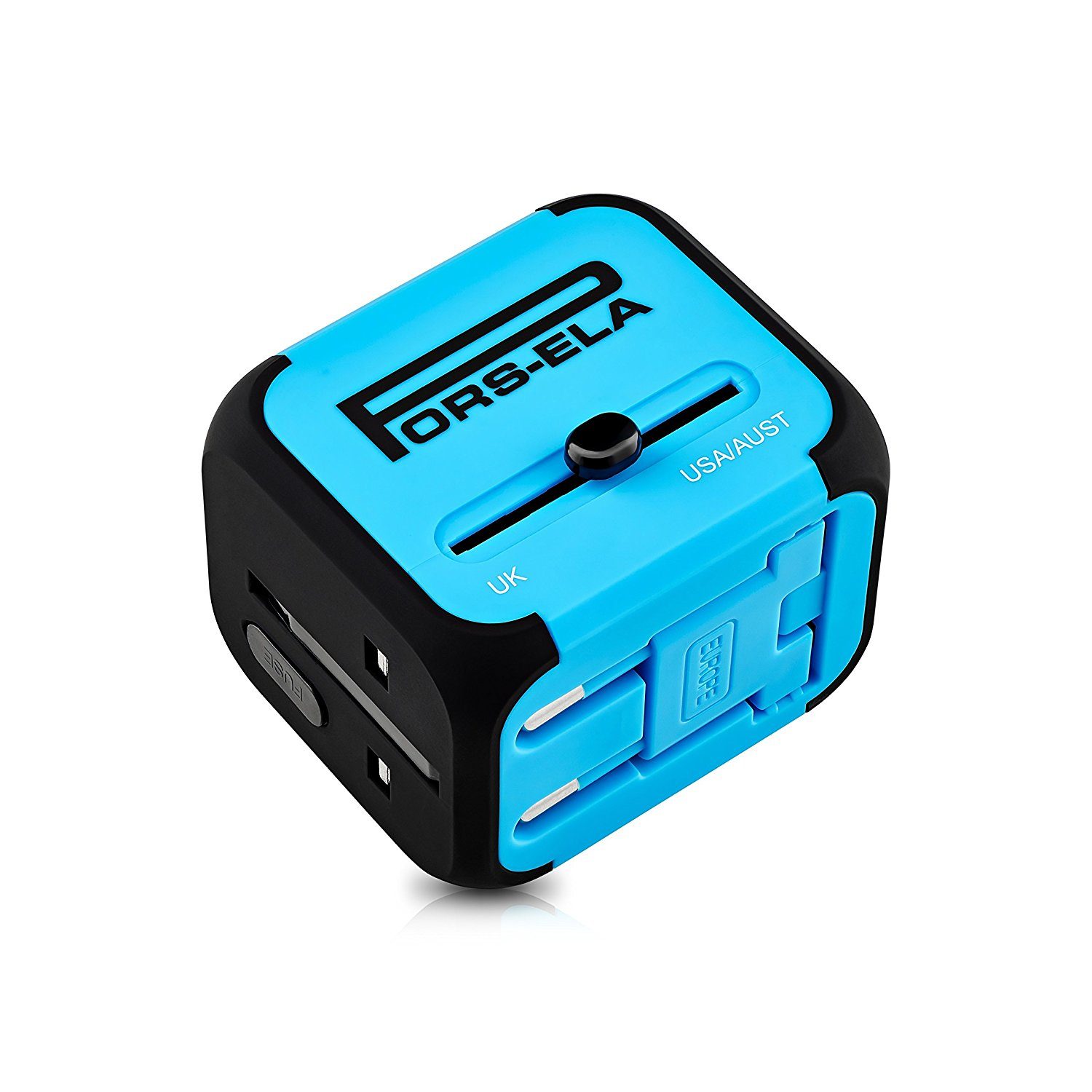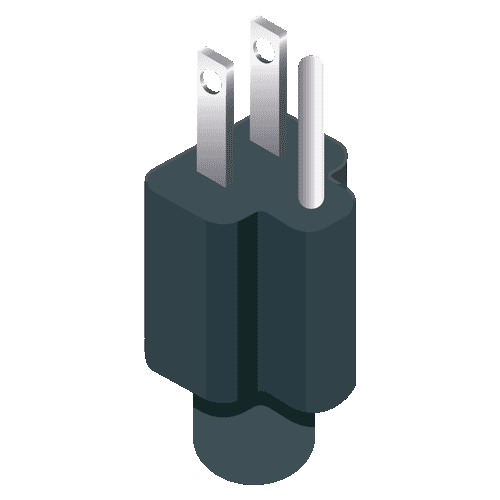Planning a trip to Costa Rica? Understanding the electrical systems and adapters you'll need is crucial for a smooth travel experience. Whether you're charging your phone, laptop, or other electronics, knowing the voltage, plug types, and adapter requirements can save you from frustrating surprises. This comprehensive guide will equip you with everything you need to know about Costa Rica adapter power solutions, ensuring your devices stay charged and ready to go throughout your journey.
Costa Rica, renowned for its lush rainforests, stunning beaches, and vibrant culture, is a dream destination for travelers. However, before you pack your bags, it's essential to consider the practical aspects of your trip, such as electricity and charging your devices. This guide will walk you through the specifics of Costa Rica's electrical system, offering practical advice to help you prepare.
From understanding the plug types and voltage standards to recommending reliable adapters and converters, we'll cover all the bases. Let's dive in and ensure your trip to Costa Rica is as seamless as possible when it comes to powering your electronics.
Read also:What Is Sabrina Carpenters Lucky Number Unveiling The Mystique
Table of Contents
- Electricity Overview in Costa Rica
- Plug Types Used in Costa Rica
- Voltage and Frequency Standards
- Do You Need an Adapter in Costa Rica?
- Adapters vs. Converters: What's the Difference?
- Best Adapters for Costa Rica
- Travel Tips for Charging Electronics
- Common Questions About Costa Rica Adapter Power
- Safety Precautions When Using Adapters
- Conclusion
Electricity Overview in Costa Rica
Costa Rica's electricity infrastructure is modern and reliable, making it relatively easy for travelers to use their electronic devices. The country operates on a standard voltage of 120V and a frequency of 60Hz, which is similar to the electrical systems in North America. This compatibility means that many travelers from the United States and Canada won't need a voltage converter, but an adapter might still be necessary depending on the plug type.
It's important to note that while the voltage is consistent, power outages can occur in remote areas. For peace of mind, consider bringing a portable power bank to ensure your devices remain charged during unexpected disruptions.
Why Voltage Matters
Understanding the voltage requirements of your devices is critical. Devices designed for 110V-120V, such as those from North America, will work seamlessly in Costa Rica. However, if your device is designed for 220V-240V, typical in Europe and Asia, you'll need a voltage converter to avoid damaging your electronics.
Plug Types Used in Costa Rica
Costa Rica primarily uses Type A and Type B plugs, which are standard in North America. These plugs have two flat prongs (Type A) or two flat prongs with a grounding pin (Type B). If your devices use these plug types, you won't need an adapter. However, if you're traveling from a country with different plug types, such as the UK (Type G) or Europe (Type C/F), an adapter will be essential.
Checking Your Device Compatibility
- Type A: Two flat prongs
- Type B: Two flat prongs with a grounding pin
- Type C: Two round prongs
- Type G: Three rectangular prongs
Verify the plug type of your devices before your trip to ensure you bring the correct adapter.
Voltage and Frequency Standards
As mentioned earlier, Costa Rica operates on 120V and 60Hz. While voltage compatibility is straightforward for North American travelers, frequency differences might affect certain devices, such as electric clocks or motorized appliances. Modern electronics, including smartphones and laptops, are typically dual-voltage and won't be affected by frequency differences.
Read also:Unpacking The Imskirby Dog Incident Leak A Comprehensive Analysis
How to Check Your Device's Voltage Compatibility
Most devices have a label or inscription near the power input that specifies the voltage and frequency range. Look for a marking like "Input: 100-240V, 50-60Hz," which indicates dual-voltage compatibility. If your device only supports 220V-240V, a voltage converter will be necessary.
Do You Need an Adapter in Costa Rica?
Whether you need an adapter depends on your country of origin and the plug types of your devices. Travelers from North America generally won't need an adapter, as their devices are compatible with Costa Rica's electrical system. However, travelers from Europe, Asia, or other regions with different plug types will require an adapter to connect their devices to Costa Rican outlets.
What to Look for in a Quality Adapter
When choosing an adapter, prioritize safety and reliability. Look for adapters with the following features:
- Compatibility with multiple plug types
- Surge protection
- Multiple USB ports for charging multiple devices
- Certifications from trusted organizations (e.g., UL, CE)
Adapters vs. Converters: What's the Difference?
While adapters and converters are often used interchangeably, they serve different purposes. An adapter allows you to plug your device into a foreign outlet without altering the voltage, while a converter changes the voltage to match your device's requirements. Understanding the difference is crucial for ensuring your electronics function correctly and safely.
When to Use a Converter
If your device is designed for a voltage range different from Costa Rica's 120V, a converter is necessary. For example, hairdryers, curling irons, and other high-wattage appliances from Europe or Asia will require a converter to avoid damage. Always check your device's voltage requirements before using a converter.
Best Adapters for Costa Rica
Choosing the right adapter can make a significant difference in your travel experience. Below are some of the best adapters for Costa Rica, recommended for their quality, versatility, and safety features.
Top Picks for Costa Rica Adapters
- Travel Adapter with USB Ports: Ideal for charging multiple devices simultaneously.
- Worldwide Adapter: Compatible with multiple plug types, perfect for international travelers.
- Compact Adapter: Lightweight and portable, great for minimalist travelers.
Investing in a high-quality adapter ensures your devices remain charged and functional throughout your trip.
Travel Tips for Charging Electronics
Here are some practical tips to help you manage your electronics while traveling in Costa Rica:
- Carry a portable power bank for backup charging.
- Bring extra charging cables in case of loss or damage.
- Charge your devices during the day to avoid waking up to a dead battery.
- Use surge protectors to safeguard your devices from power fluctuations.
Planning ahead and being prepared can prevent unnecessary stress and ensure your devices are always ready to use.
Common Questions About Costa Rica Adapter Power
Here are answers to some frequently asked questions about electricity and adapters in Costa Rica:
Q1: Can I use a universal adapter in Costa Rica?
Yes, a universal adapter compatible with Type A and Type B plugs will work perfectly in Costa Rica.
Q2: Do I need a voltage converter for my laptop?
No, most laptops are dual-voltage and will work with Costa Rica's 120V system. However, always check your laptop's power adapter specifications to confirm.
Q3: Are power outages common in Costa Rica?
Power outages are rare in urban areas but can occur in remote regions. A portable power bank is a wise investment for such situations.
Safety Precautions When Using Adapters
Using adapters and converters safely is essential to protect your devices and ensure your safety. Follow these guidelines:
- Choose adapters and converters from reputable manufacturers.
- Avoid overloading outlets with too many devices.
- Unplug devices when not in use to prevent electrical fires.
- Inspect adapters and converters regularly for signs of wear or damage.
By adhering to these safety precautions, you can enjoy a worry-free travel experience in Costa Rica.
Conclusion
In summary, understanding Costa Rica's electrical system and adapter requirements is vital for a seamless travel experience. By familiarizing yourself with the voltage, plug types, and adapter options, you can ensure your devices remain charged and functional throughout your journey. Remember to choose high-quality adapters and converters, follow safety precautions, and plan ahead for unexpected situations.
We invite you to share your thoughts and experiences in the comments below. Have you traveled to Costa Rica and encountered any challenges with adapters or power? Let us know! And don't forget to explore our other travel guides for more helpful tips and insights.


